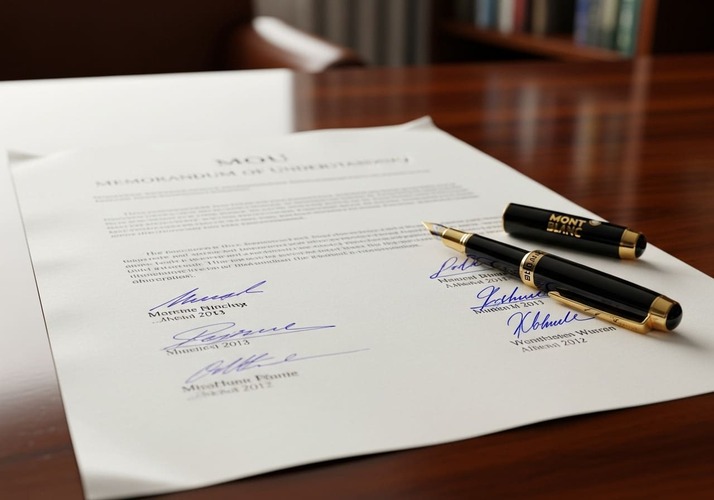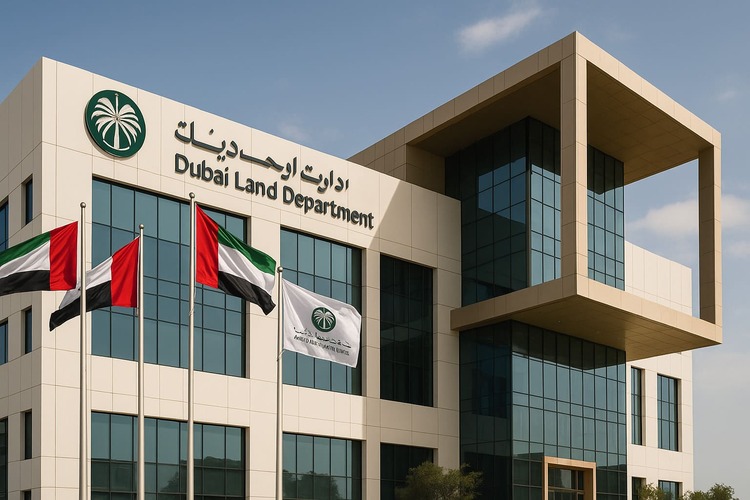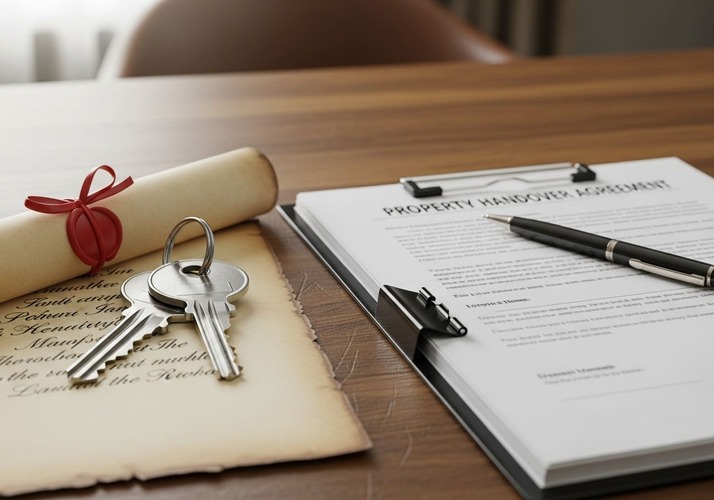In Dubai real estate, the MOU (Memorandum of Understanding) is a binding agreement between buyer and seller outlining terms, price, deposit, and timelines before transfer. It protects both parties and is essential for a smooth property deal.
Introduction
Buying property in Dubai isn’t just about spotting a dream home and shaking hands with the seller. Between that initial agreement and finally getting the keys lies one critical document — the Memorandum of Understanding (MOU). It’s the blueprint of your deal, capturing the agreed terms and ensuring everyone knows exactly what happens next.
But here’s the thing: while MOUs are standard, many buyers (and even some sellers) sign them without fully understanding the details — leading to delays, disputes, or even losing deposits. In this guide, we’ll walk you through the entire MOU process in Dubai real estate, step by step, so you know exactly what to expect from handshake to handover.
What is an MOU in Dubai Real Estate?

The MOU, also called Form F in Dubai, is a legally binding contract used for secondary market transactions between buyer and seller. It sets the agreed sale price, payment terms, transfer date, and other conditions before the official transfer at the Dubai Land Department (DLD).
For off-plan purchases from a developer, the equivalent document is the Sales and Purchase Agreement (SPA), which outlines the property details, payment plan, and completion date.
Key purposes of the MOU:
✅ Acts as a record of agreed terms.
✅ Protects both parties by outlining obligations.
✅ Triggers the payment of the buyer’s deposit (typically 10%).
✅ Forms the basis for the final title transfer.
Pro Tip: In Dubai, Form F is issued through the Dubai REST App by the Real Estate Regulatory Agency (RERA) and must be signed by both parties.
Where Does the MOU Fit in the Dubai Property Buying Process?

The MOU sits between the verbal agreement and the final transfer of ownership:
1. Price Negotiation
2. Agreement in Principle
3. MOU Signing & Deposit Payment
4. No Objection Certificate (NOC) from Developer
5. Title Transfer at DLD
For most buyers, this is the first legally binding step in their property purchase journey.
What Does a Typical Dubai MOU Include?

An MOU usually contains:
✅ Buyer & Seller Details – Passport/Emirates ID, contact info.
✅ Property Details – Unit number, size, location.
✅ Agreed Price – Clearly stated in AED.
✅ Deposit Amount & Payment Method – Normally 10% by post-dated cheque, held in custody with the seller’s broker in secondary deals.
✅ Transfer Date – Deadline for completing the deal.
✅ Special Conditions – Furniture included, repairs, or payment terms.
✅ Penalty Clauses – Consequences if either party defaults.
Common Mistakes Buyers Make with MOUs
1. Not Reading the Fine Print
Some buyers assume the MOU is just “formality.” In reality, clauses like late transfer penalties or deposit forfeiture can have big financial consequences.
2. Skipping Due Diligence
Failing to verify the property’s mortgage status or service fee arrears before signing can cause delays.
3. Ignoring the Timeline
MOUs have strict deadlines. Missing them could void the deal.
MOU for Off-Plan vs Ready Properties
Off-Plan Properties
✅ Often involves a Developer Sale Agreement in place of a traditional MOU.
✅ SPA includes specifications, floor plan, parking allocation, materials used inside the apartment, and details of common areas and amenities.
✅ Payment plans and handover schedules are detailed.
Ready Properties
✅ MOU is standard and immediate transfer is usually possible after NOC and DLD processes.
What Happens if Either Party Backs Out?
✅ If the Buyer Defaults: Deposit is usually forfeited to the seller.
✅ If the Seller Defaults: Seller must refund the deposit, often with a penalty.
✅ RERA dispute resolution can be sought in case of disagreements.
How Svarn Development Ensures Transparency

At Svarn, we believe the MOU shouldn’t be a mystery. That’s why we:
✅ Walk buyers through every clause before signing.
✅ Verify all property documents in advance.
✅ Ensure timelines are realistic and achievable.
✅ Provide regular updates until handover.
Top Tips Before Signing an MOU in Dubai
1. Verify the Property’s Legal Status – Check for mortgages or disputes.
2. Get a Clear Transfer Date – Avoid vague “TBD” timelines.
3. Understand Penalties – Know what happens if delays occur.
4. Have Funds Ready – Especially for the 10% deposit.
5. Work with a RERA-Licensed Agent – Ensures legal compliance.
FAQ’s
1. What is an MOU in Dubai real estate?
An MOU (Memorandum of Understanding), also called Form F in Dubai, is a legally binding agreement between a property buyer and seller that sets out the price, terms, and timelines before the official title transfer at the Dubai Land Department.
2. Is the MOU in Dubai legally binding?
Yes. Once signed by both parties and registered via the RERA-approved Dubai REST App, the MOU becomes legally binding. Breaking it without valid cause can lead to financial penalties or forfeiture of the deposit.
3. How much deposit is required when signing an MOU in Dubai?
Most property transactions in Dubai require a 10% deposit from the buyer when signing the MOU. This is usually paid by cheque and held by the seller’s agent until transfer.
4. Can I back out of an MOU after signing in Dubai?
You can, but there are consequences. If the buyer backs out without a valid reason, they typically lose the deposit. If the seller backs out, they must usually refund the deposit, sometimes with an additional penalty.
5. What happens after signing an MOU in Dubai property deals?
After signing the MOU, the buyer applies for a No Objection Certificate (NOC) from the developer, settles any outstanding fees, and proceeds to title transfer at the Dubai Land Department.
6. How is an MOU different from an SPA in Dubai?
The MOU records the initial agreed terms and triggers the deposit payment. The SPA (Sales and Purchase Agreement) is the final, detailed legal contract executed at the transfer stage.
7. Do MOUs work the same for off-plan and ready properties in Dubai?
Not exactly. For ready properties, the MOU is standard. For off-plan properties, a developer’s sale agreement is usually used instead, outlining payment schedules and completion dates.
8. Who prepares the MOU in Dubai real estate transactions?
Typically, the buyer’s or seller’s real estate agent prepares the MOU using the official RERA Form F on the Dubai REST App to ensure compliance with local regulations.
9. What should I check before signing an MOU in Dubai?
Verify the property’s legal status, check for outstanding service charges or mortgages, confirm the agreed transfer date, and fully understand all penalty clauses.
10. Does JVC benefit from Dubai’s property MOU process?
Yes. While the MOU process is standard across Dubai, buyers in areas like JVC benefit from faster processing due to the community’s established developer network and streamlined NOC issuance.
Final Takeaway
In Dubai property deals, the MOU is more than a formality – it’s the foundation of your transaction. Understanding it inside-out can protect your investment, avoid costly mistakes, and ensure a smooth handover.Looking to buy or sell in JVC or beyond? At Svarn Development, we guide you from handshake to handover with complete transparency and care.

